Learn how to integrate ChatGPT into your WordPress site using plugins or custom code. Boost engagement with AI in just minutes
Want to add an AI chatbot to your WordPress site? ChatGPT can make it smarter.
In today’s digital landscape, artificial intelligence is transforming how websites interact with users. From answering customer questions in real-time to generating dynamic content, AI is no longer a luxury—it’s a necessity. And when it comes to AI chatbots, ChatGPT by OpenAI is leading the way.
Integrating ChatGPT into your WordPress site isn’t just a tech upgrade—it’s a strategic move to improve user engagement, offer round-the-clock support, and generate leads automatically. Whether you’re a blogger, business owner, or developer, tapping into ChatGPT’s capabilities can help elevate your site’s functionality and user experience.
In this guide, we’ll walk you through everything you need to know: how to integrate ChatGPT into WordPress.
What Is ChatGPT and Why Integrate It into WordPress?
ChatGPT is an advanced AI language model developed by OpenAI, designed to generate human-like responses in real-time. It can answer questions, assist with content creation, provide customer support, and even simulate conversations—making it an ideal AI companion for websites and businesses.
Why Integrate ChatGPT into WordPress?
Adding ChatGPT to your WordPress site brings a wide range of benefits:
- Improved User Experience (UX): Visitors can get instant answers to their questions without navigating multiple pages. This keeps them engaged and reduces bounce rates.
- 24/7 Automated Support: ChatGPT acts like a tireless virtual assistant, helping customers even when your team is offline.
- Boosted SEO Performance: AI chat can improve time-on-site and reduce bounce rates—factors search engines consider for ranking.
- Higher Conversion Rates: By answering user queries in real-time and guiding them through your offerings, AI chatbots can increase form fills, purchases, or sign-ups.
- Content Assistance: Some integrations allow you to use ChatGPT for blog writing, product descriptions, or idea generation—right within WordPress.
Whether you’re running a blog, an e-commerce store, or a corporate website, integrating ChatGPT into WordPress can streamline operations and elevate user satisfaction.
Methods to Integrate ChatGPT
Adding ChatGPT to your WordPress site can be done in two primary ways: using no-code plugins or through a custom OpenAI API integration. The method you choose depends on your technical expertise, budget, and customization needs. Below, we cover both options in detail so you can decide what works best for your site.
Using WordPress Plugins (No Code Required)
If you want a quick and code-free way to integrate ChatGPT, WordPress plugins are your best bet. These plugins are designed for ease of use and come with user-friendly interfaces for configuration.
Best ChatGPT Plugins for WordPress
- AI Engine (by Jordy Meow): Allows you to chat with ChatGPT and generate content inside the WordPress editor.
- WPBot – ChatBot: Includes natural language chatbot features with support for Dialogflow and OpenAI.
- GPT AI Power: Offers tools for chatbot integration, AI-generated posts, WooCommerce support, and image creation.
How to Install and Configure
- Go to your WordPress dashboard → Plugins → Add New.
- Search for the plugin (e.g., “AI Engine” or “GPT AI Power”).
- Click “Install Now” and then “Activate.”
- Navigate to plugin settings, paste your OpenAI API Key, and configure chatbot behavior.
- Customize welcome messages, trigger keywords, and style settings based on your website’s theme.
Pros and Cons of Plugin-Based Integration
| Feature | Plugin Integration |
| Ease of Setup | ✅ Very easy (no coding) |
| Customization | ⚠️ Limited UI options |
| Ongoing Maintenance | ✅ Plugin updates handle it |
| Third-Party Dependency | ✅ Plugin reliant |
| Cost | Varies by plugin features |
| Human Escalation | ✅ Available via Social Intents plugin |
Custom Integration via OpenAI API
For developers and advanced users who want full control over chatbot behavior and appearance, custom API integration offers the most flexibility.
Getting an OpenAI API Key
- Go to OpenAI platform and sign up.
- Log in, click your profile icon → View API Keys.
- Generate a new key and copy it securely.
- Make sure billing is enabled to avoid request limits.
Sample PHP or JavaScript Snippet
You can embed ChatGPT using PHP or JavaScript within your theme or a custom plugin:
PHP Example:
$response = wp_remote_post('https://api.openai.com/v1/chat/completions', array(
'headers' => array(
'Authorization' => 'Bearer YOUR_API_KEY',
'Content-Type' => 'application/json',
),
'body' => json_encode(array(
'model' => 'gpt-3.5-turbo',
'messages' => array(
array('role' => 'user', 'content' => 'Hello, ChatGPT!')
)
))
));javascript Example:
fetch("https://api.openai.com/v1/chat/completions", {
method: "POST",
headers: {
"Authorization": "Bearer YOUR_API_KEY",
"Content-Type": "application/json"
},
body: JSON.stringify({
model: "gpt-3.5-turbo",
messages: [{ role: "user", content: "How can I help you today?" }]
})
})
.then(res => res.json())
.then(data => console.log(data));Security and Performance Considerations
- Protect your API key: Never expose it on the client side. Use server-side logic.
- Rate Limits: OpenAI enforces request quotas depending on your billing tier.
- Latency: Custom setups may introduce slight delays depending on your hosting and API response times.
- Caching: Use caching or fallback messages to handle API timeouts or errors gracefully.
If you are still confused then here we take and plugin to implement the chatgpt with the plugin Socail intents:
Step-by-Step Setup with Social Intents Plugin
Integrating ChatGPT into your WordPress website is simple using the Social Intents plugin. Follow these steps to get your AI-powered chatbot live in just a few minutes:
1. Sign Up for Social Intents
Visit Social Intents and create a free account. Choose how you’d like to manage live chats — via Microsoft Teams, Slack, Zoom, Webex, or directly from their dashboard.
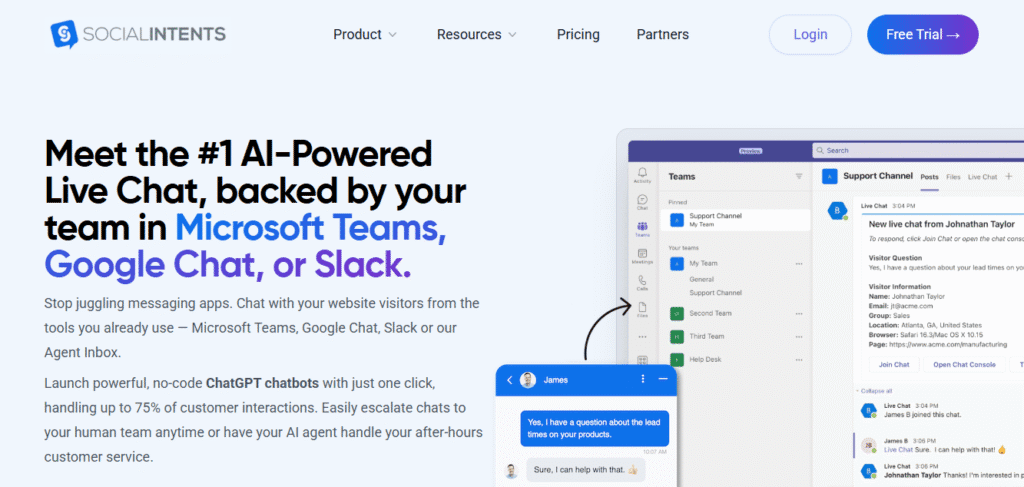
2. Create Your OpenAI API Key
Go to OpenAI’s platform and sign in.
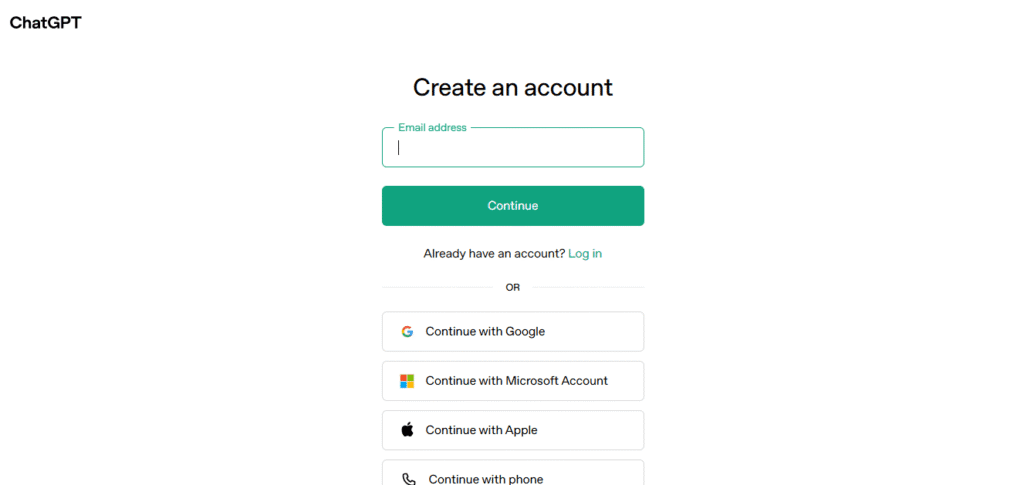
Click your profile icon → View API Keys → Create new key.
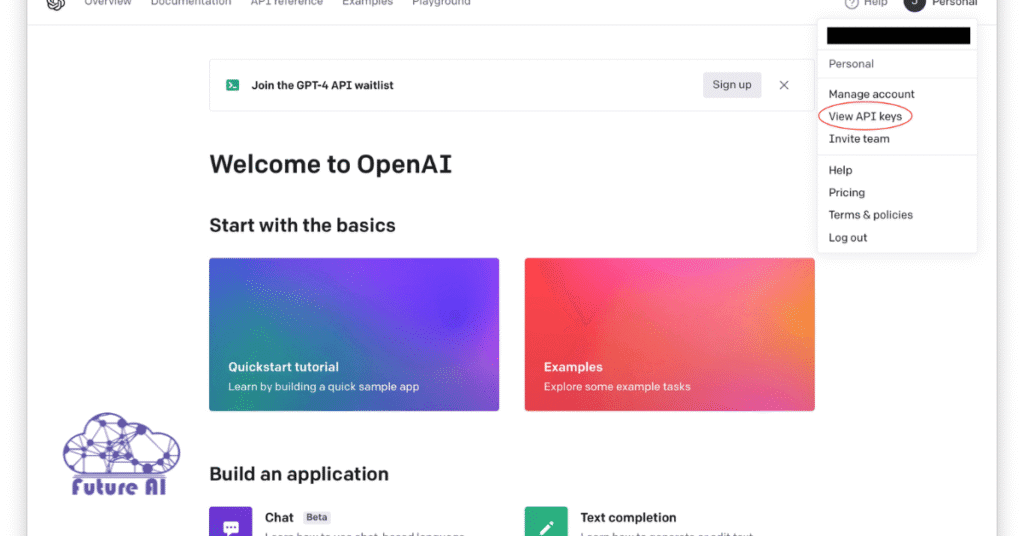
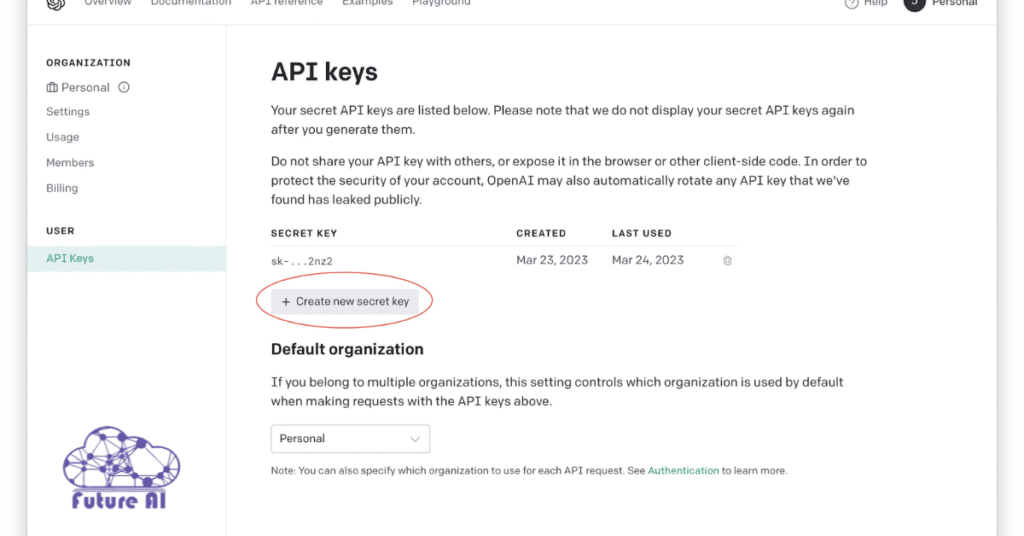
Note: You must set up billing with OpenAI to access the API.
3. Add the API Key to Social Intents
In your Social Intents dashboard, go to My Apps → Edit Settings for your chat widget.
Under Chatbot Settings, select “ChatGPT with OpenAI” as your chatbot type and paste in your API key.
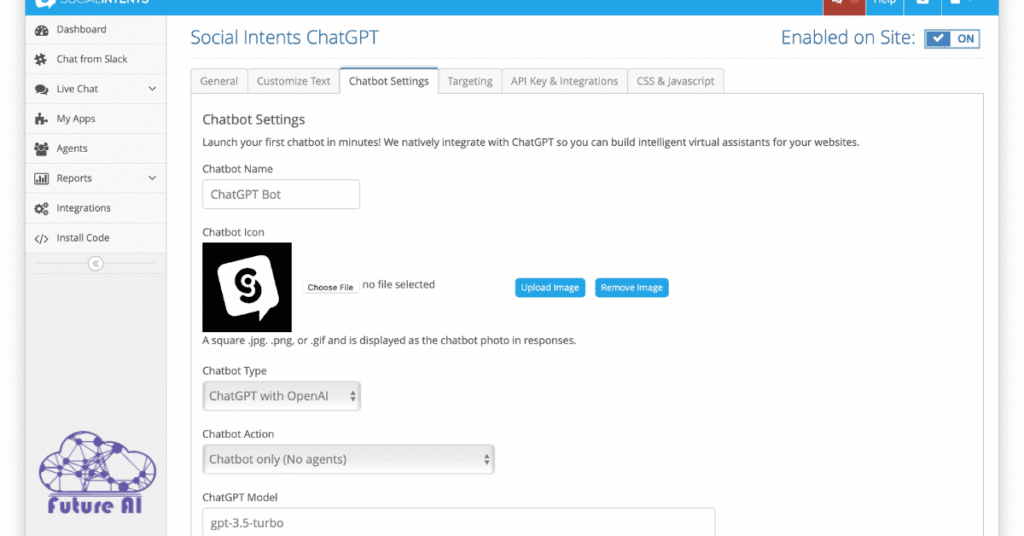
4. Customize Your Chatbot
Set up:
- A default welcome message
- Quick reply buttons for better user direction
- Human escalation trigger phrases (e.g., “talk to a person”)
- Instruction/System prompts to guide the chatbot’s behavior
- Choose a ChatGPT model (e.g., GPT-3.5 or GPT-4)
5. Install the WordPress Plugin
In your WordPress dashboard, go to Plugins → Add New.
Search for: Live Chat for Microsoft Teams and Slack
Click Install Now, then Activate the plugin.
6. Paste Your API Key into Plugin Settings
After activating the plugin, go to Settings and locate the field for “App Key” or “API Key.”
Paste the key from your Social Intents dashboard into the field and Save Settings.
7. Test Your ChatGPT Chatbot On-Site
Visit your WordPress site to test the chatbot. ChatGPT should now appear as a live chat widget.
Try sending a few test messages and see how the bot handles responses and escalates to human agents if needed.
Comparison: Plugin vs Custom Integration
| Feature | Plugin (e.g., Social Intents) | Custom API Integration |
| Ease of Setup | ✅ Beginner-friendly, no code needed | ❌ Requires coding and technical setup |
| Customization | ⚠️ Limited to plugin settings | ✅ Full control over logic and UX |
| Cost | 💲 Plugin-based subscription | 💲 Pay-as-you-go (based on API usage) |
| Human Handoff Support | ✅ Built-in via tools like Teams/Slack | ❌ Requires separate live chat setup |
| Maintenance | ✅ Handled by plugin provider | ❌ Developer must handle maintenance |
| Security | ✅ Managed within plugin’s framework | ⚠️ You must implement securely |
| Scalability | ⚠️ May depend on plugin limits | ✅ Easily scalable with your stack |
| Support & Updates | ✅ Regular updates & support | ❌ DIY or 3rd-party reliance |
| Speed of Deployment | ✅ Live in under 10 minutes | ❌ Time-consuming to implement |
| Control over AI Model | ⚠️ Depends on plugin options | ✅ Choose model, training, behavior |
| User Analytics | ✅ Often built-in | ⚠️ Requires external tools setup |
| Best For | Small to medium businesses, non-tech users | Developers, enterprises needing full control |
This table makes it easier for readers to choose between a plug-and-play solution like Social Intents and a custom-built integration using the OpenAI API directly.
Still confused then watch this YouTube video for more help in integration:
Use Cases for ChatGPT on WordPress
Integrating ChatGPT into your WordPress site isn’t just about automation — it’s about enhancing user experience, reducing manual effort, and improving engagement. Here are some of the most impactful use cases:
AI Chatbot for Customer Support
ChatGPT can act as a 24/7 virtual assistant for your website visitors. Whether you’re running an eCommerce store or a service-based business, it can:
- Answer frequently asked questions in real-time
- Guide users through product selection or services
- Qualify leads before human handoff
- Handle basic troubleshooting queries
- Reduce support ticket volume
Combined with live chat plugins like Social Intents, it can even escalate unresolved chats to human agents on platforms like Slack, Microsoft Teams, or Zoom.
AI Content Generation Within WordPress Editor
Tools like GPT AI Power and AI Engine allow you to harness ChatGPT directly within the WordPress editor. This feature is especially useful for:
- Generating blog post drafts
- Writing product descriptions
- Suggesting SEO-friendly titles and meta descriptions
- Creating content outlines or FAQ sections
- Translating content into multiple languages
It speeds up your content workflow while keeping the quality consistent.
AI-Powered Search Function or FAQ Assistant
ChatGPT can be embedded as a smart search assistant or interactive FAQ widget. Instead of users browsing endless help articles, the bot can:
- Understand natural language queries
- Pull answers from your knowledge base or posts
- Provide dynamic, context-aware responses
- Reduce bounce rate by improving navigation
This can be done through custom integration or plugin features like WPBot, which offers chatbot-based search.
ChatGPT Integration Examples
Seeing is believing — here’s how real businesses and blogs are using ChatGPT in their WordPress sites:
- Ecommerce Sites:
Online stores use ChatGPT to guide shoppers, offer product recommendations, and even assist with checkout queries — all via chat. - Blogs & Media Platforms:
Content-focused websites use ChatGPT-powered tools to draft articles, summarize content, and help readers find relevant posts. - SaaS and Service Providers:
These sites integrate ChatGPT for onboarding walkthroughs, instant tech support, and lead qualification chats.
Comparison with Other AI Tools
When it comes to integrating AI into your WordPress site, ChatGPT isn’t the only option. Google Bard and Claude also offer robust AI solutions. Here’s how these three AI models stack up against each other in terms of integration, features, and overall performance:
Feature Comparison: ChatGPT vs. Google Bard vs. Claude
| Feature | ChatGPT | Google Bard | Claude |
| Integration with WordPress | Easy integration via plugins (e.g., AI Engine, Social Intents) or custom API | Limited WordPress integrations via plugins or third-party tools | Custom API integration required |
| Ease of Use | User-friendly with extensive documentation and plugins | Simple interface but fewer plugin options | Requires more technical setup for integration |
| Natural Language Understanding | Advanced conversational abilities (GPT-3.5 & GPT-4) | Strong but more tailored for search queries | Good conversational abilities but less refined |
| Real-time Interaction | Supports real-time chat via live chat plugins | Primarily focuses on generating search results, not as interactive | Real-time responses possible with custom setup |
| Customization Options | High — can be tailored with system prompts and models | Moderate — limited customization through external APIs | High — customizable prompts and responses |
| Multilingual Support | Supports multiple languages (up to 50+) | Primarily English-focused but supports several languages | Supports multiple languages |
| Lead Generation | Can pre-qualify leads with automated chatbot responses | No native lead generation features | Can integrate lead capture with custom setups |
| Escalation to Human Agents | Built-in handoff with third-party plugins | No built-in support for human escalation | Customizable to allow handoff to humans via API |
| Cost | Flexible pricing based on OpenAI models | Free but usage is limited, no detailed pricing available | Variable, depending on the deployment |
| Strengths | Strong conversational ability, flexible, and widely adopted | Great for search-driven content generation and knowledge extraction | Excellent at understanding context with high customization |
| Limitations | Requires a plugin or API integration for full use | Limited WordPress integration, mainly search-based | Needs technical knowledge for integration, fewer plugins available |
Strengths and Limitations of ChatGPT, Google Bard, and Claude
- ChatGPT Strengths:
- Wide Integration Support: ChatGPT integrates seamlessly with WordPress via popular plugins like Social Intents and AI Engine.
- Advanced Conversational Ability: With GPT-4, ChatGPT is able to engage in human-like conversations, making it great for customer support, FAQs, and live chat features.
- High Customization: Full control over behavior and response with system prompts and model selections.
- ChatGPT Limitations:
- Pricing for High-Volume Usage: While there’s a free tier, heavy usage can become costly.
- Setup Complexity for Custom Solutions: Custom API integrations can require technical knowledge, though plugins can mitigate this for non-developers.
- Google Bard Strengths:
- Strong Search Integration: Google Bard is designed for generating search-like answers, making it suitable for answering specific queries.
- Free Access: Bard is free for all users with no need for API keys, though usage is limited.
- Google Bard Limitations:
- Limited Customization: Bard is mainly for search-based answers, with fewer opportunities for interaction or customization compared to ChatGPT.
- No Native WordPress Plugin: Bard lacks dedicated plugins for WordPress integration, making it less suitable for live chat or support.
- Claude Strengths:
- Highly Customizable: Claude is excellent for bespoke AI solutions and is ideal for those with technical expertise who need tailored responses.
- Good Context Understanding: Claude has a high level of understanding in conversations, useful for more in-depth interactions.
- Claude Limitations:
- Technical Integration: Requires custom API integration, making it less accessible for non-developers.
- Fewer Plugins Available: Lacks the vast library of WordPress plugins that ChatGPT benefits from.
Curious how ChatGPT stacks up against other AI tools? Check out this in-depth comparison between DeepSeek and ChatGPT.Common Errors & How to Fix Them
While integrating ChatGPT into your WordPress site can be a smooth process, some users may encounter errors along the way. These errors are often related to API rate limits, plugin conflicts, or general issues with the integration. Below, we outline the most common errors and provide practical solutions to fix them.
1. API Rate Limits
Error: “You have exceeded your API request limit.”
- Cause: OpenAI imposes rate limits on API requests to prevent excessive usage. If your WordPress site sends too many requests within a given time period, you may encounter this error.
- Solution:
- Check API Usage: Log into your OpenAI account and review your usage under the “Usage” tab to ensure you’re within your limit.
- Upgrade Plan: If you’re hitting the rate limit frequently, consider upgrading to a higher-tier plan with increased usage allowances.
- Throttling Requests: Implement throttling on your website to limit the frequency of requests being sent to the OpenAI API.
2. Plugin Conflicts
Error: “ChatGPT is not working as expected after plugin installation.”
- Cause: Certain plugins on your WordPress site may conflict with the ChatGPT integration, causing issues like the chatbot not loading or interactions failing.
- Solution:
- Deactivate Other Plugins: Temporarily deactivate other plugins to identify the conflicting one.
- Check for Updates: Ensure all your plugins, including the ChatGPT plugin, are up to date. Developers often release fixes for compatibility issues in newer versions.
- Compatibility Testing: Use the WordPress plugin conflict tester or manual method of deactivating and reactivating plugins one by one to identify the issue.
- Contact Plugin Support: If you find a specific plugin is causing the conflict, contact the plugin’s support team for help or find a compatible alternative.
3. “Oops, Something Went Wrong” Issues
| Error | Cause | Solution |
| API Connection Timeout | Slow network or server issues. | – Check your server’s connection to OpenAI API. – Use faster hosting or check for outages. |
| Invalid API Key | Incorrect or expired API key. | – Double-check your OpenAI API key in the plugin settings. – Re-generate the key from your OpenAI account. |
| Plugin Installation Failure | Incomplete plugin installation. | – Reinstall the plugin. – Ensure all dependencies are met. |
| JavaScript Errors (Console Errors) | Conflicts with other scripts or themes. | – Clear browser cache. – Temporarily disable other scripts or switch to a default theme to check compatibility. |
| Chatbot Not Responding | System message setup or misconfigurations. | – Review the chatbot’s system message settings. – Ensure your OpenAI API is correctly configured in the plugin. |
Having trouble with ChatGPT showing an error? Click here to quickly fix the “Oops, an Error Occurred” issue.Solutions Table
| Error | Possible Causes | How to Fix |
| API Rate Limit Exceeded | Too many API requests in a short time | – Check API usage in OpenAI account. – Upgrade your plan if necessary. – Implement throttling. |
| ChatGPT Not Loading | Plugin conflict or installation issues | – Deactivate other plugins and test. – Ensure plugins are up to date. |
| “Oops, Something Went Wrong” | Invalid API key or timeout issues | – Re-check API key. – Clear browser cache. – Ensure proper API configuration. |
Getting the “Error in Message Stream” on ChatGPT? Click here to understand the causes and get quick fixes.Best Plugins or Ways to Integrate ChatGPT into WordPress
ChatGPT WordPress Plugin
- The ChatGPT WordPress Plugin allows you to quickly integrate ChatGPT into your WordPress site. With minimal configuration, this plugin can turn your website into a smart, conversational AI assistant. The plugin allows ChatGPT to answer user queries, assist with customer support, or even pre-qualify leads for your business.
- Best Feature: Easy-to-use with direct OpenAI API integration.
- Recommended For: Site owners looking for a quick, no-code solution to integrate AI.
Use ChatGPT to Build a WordPress Website
- You can leverage ChatGPT to generate content for your WordPress site, write blog posts, or even assist with the basic design and layout of pages. Although ChatGPT doesn’t directly build websites, it can help automate the content creation process, significantly improving efficiency.
- Best Feature: Content creation assistance and automatic blog post generation.
- Recommended For: Bloggers or website owners looking to enhance their content creation workflow.
ChatGPT WordPress Prompts
- ChatGPT WordPress Prompts are pre-set questions or commands that can help users interact with the AI more effectively on your WordPress site. You can customize prompts for various tasks like answering FAQs, generating blog content, or assisting with product descriptions.
- Best Feature: Customizable prompt system tailored to your site’s needs.
- Recommended For: WordPress site owners who need dynamic interaction from their AI assistant.
Create a WordPress Plugin with ChatGPT
- If you have some coding experience, you can create your own WordPress plugin that integrates ChatGPT using the OpenAI API. This method gives you full control over the functionalities, allowing you to customize the interaction between ChatGPT and your site visitors.
- Best Feature: Full control over how ChatGPT interacts with your site.
- Recommended For: Developers or tech-savvy site owners who want a tailored AI experience.
ChatGPT WordPress Reddit
- Searching for ChatGPT WordPress Reddit is a good way to get insights from other users who have successfully integrated ChatGPT into their WordPress sites. There are many discussions on various approaches, tools, and plugins that can be used to implement ChatGPT efficiently.
- Best Feature: Community insights, troubleshooting, and alternative solutions.
- Recommended For: WordPress users looking for peer recommendations and tips.
WordPress AI Assistant
- The WordPress AI Assistant is a versatile tool that uses AI, including ChatGPT, to help with tasks like content generation, SEO optimization, and user engagement. It’s like having a virtual assistant for your WordPress site, available 24/7 to handle customer support, generate content, and more.
- Best Feature: Comprehensive AI assistant that handles multiple tasks on your site.
- Recommended For: Site owners looking for an all-in-one AI assistant for multiple functions.
AI Engine WordPress
- The AI Engine WordPress plugin allows you to integrate ChatGPT and other AI models into your WordPress site. It offers a range of pre-built templates for various AI-driven tasks, including content generation, chatbot functionality, and language processing.
- Best Feature: Pre-configured AI templates for easy setup.
- Recommended For: Users who want a quick and flexible AI integration solution.
WordPress AI Content Generator
- WordPress AI Content Generators like ChatGPT allow you to automate the content creation process. Using natural language processing, ChatGPT can write articles, blog posts, and product descriptions based on specific prompts or guidelines you set.
- Best Feature: Automates content writing, saving time and effort.
- Recommended For: Content creators, bloggers, and digital marketers.
FAQ’s on How to Integrate ChatGPT into WordPress
How Do I Add ChatGPT to My WordPress Site?
To add ChatGPT to your WordPress site, you can either use a plugin or integrate it via the OpenAI API. The easiest method is to install a ChatGPT WordPress plugin like AI Engine or WPBot. These plugins allow you to integrate ChatGPT into your site with minimal effort. Once installed, you can configure it using your OpenAI API key, and you’re ready to start using the AI chatbot for customer support, content generation, or user interaction.
What Plugin Is Best for ChatGPT Integration?
The best plugins for integrating ChatGPT into WordPress depend on your needs:
- AI Engine: A popular choice that offers simple integration and a variety of AI-driven features.
- WPBot: Another effective plugin that integrates ChatGPT for chatbot functionalities.
- GPT AI Power: A robust plugin designed to enhance the user experience on your WordPress site with AI-powered content creation and chat support.
Each of these plugins is user-friendly and doesn’t require coding skills to get started.
Is It Free to Use ChatGPT on WordPress?
Using ChatGPT on WordPress typically isn’t completely free. While some plugins offer free versions, they often come with limited functionality. To access full features, such as the ability to use OpenAI’s GPT-3.5 or GPT-4 models, you’ll need to sign up for an OpenAI API key, which might incur costs depending on the level of usage. OpenAI’s pricing is based on the amount of tokens (data) processed, so if your site has high traffic, costs could increase.
Can I Customize the ChatGPT Chatbot?
Yes, you can customize the ChatGPT chatbot on WordPress. Most ChatGPT plugins allow you to:
- Set custom welcome messages.
- Use escalation triggers to move from chatbot to live agents.
- Choose from different AI models (like GPT-3 or GPT-4) based on your needs.
- Add custom instructions or system prompts to better tailor the responses.
- Design the chatbot’s appearance, including avatars and interface settings.
Customizing the chatbot allows you to match its behavior and look with your brand and site’s needs.
Does ChatGPT Slow Down My Site?
Generally, ChatGPT integration should not significantly slow down your WordPress site if you’re using an optimized plugin and OpenAI’s infrastructure. However, there are a few things to consider:
- API Calls: Each time a user interacts with ChatGPT, an API call is made, which could potentially increase load times if your site experiences high traffic.
- Plugin Quality: Ensure you are using a well-optimized plugin. Poorly coded plugins or those with many unnecessary features could affect your site’s speed.
- Caching & CDN: To ensure speed, use caching plugins and a Content Delivery Network (CDN) to serve static content efficiently.
In most cases, if set up correctly, the impact on your site’s speed should be minimal.
Conclusion
You can integrate ChatGPT into your WordPress site using plugins for a no-code approach or custom code if you prefer more control and flexibility. The right method depends on your technical skills and how deeply you want to embed AI into your site.
Ready to boost your site’s intelligence? Try integrating ChatGPT today and unlock a smarter WordPress experience.
Very nice post. I just stumbled upon your weblog and wanted to say that I have truly enjoyed browsing your blog
posts. After all I’ll be subscribing to your rss feed
and I hope you write again soon!